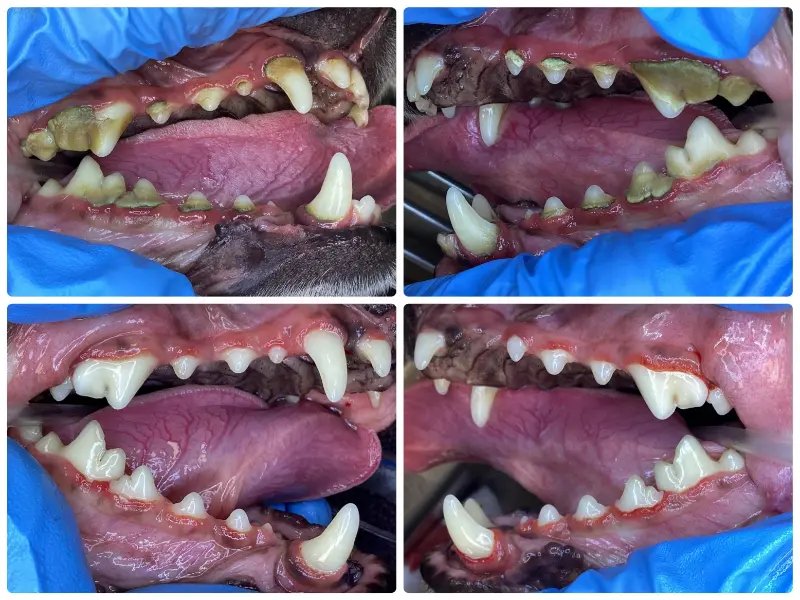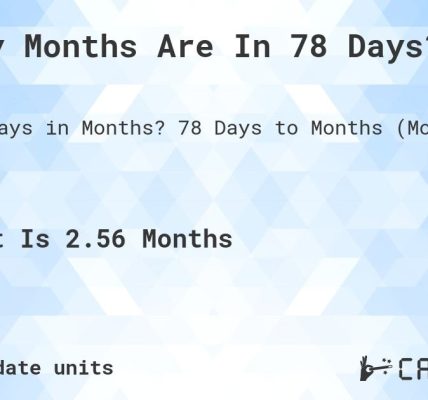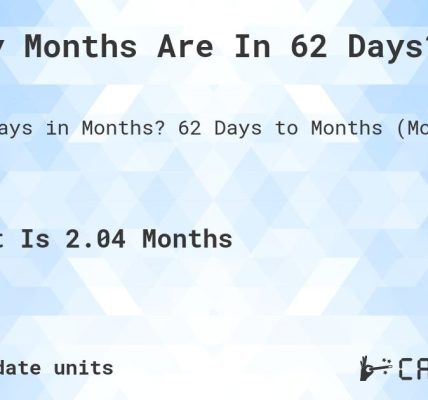Finding reliable dog teeth cleaning near me can be a game changer for your furry friend’s health. Regular dental care not only keeps their breath fresh but also prevents serious health issues.
Your dog’s smile deserves attention just like any member of the family. Seeking out local resources ensures your pet receives the best care possible.
Investing time in dental hygiene will lead to a happier, healthier life for your pup. Let’s dive into why regular teeth cleaning is essential and how to find the right services in your area.
Dog Teeth Cleaning Near Me: Keeping Your Pup’s Smile Bright
Taking care of your dog’s dental health is just as important as looking after their overall well-being. Finding dog teeth cleaning services “near me” can be crucial for maintaining your furry friend’s oral hygiene. This article dives deep into the various aspects of dog teeth cleaning, helping you understand why it matters and how to find the best services in your area.
Why Is Dog Teeth Cleaning Important?
Just like humans, dogs can suffer from dental issues if their teeth aren’t cleaned regularly. Here are some key reasons why professional teeth cleaning is essential for your dog:
- Prevention of Dental Diseases: Regular cleaning helps prevent periodontal disease, which can lead to painful infections and tooth loss.
- Fresh Breath: A clean mouth contributes to fresher breath, making cuddles and kisses much more enjoyable.
- Overall Health: Poor dental hygiene can lead to serious health problems, including heart disease and kidney issues.
- Detection of Oral Issues: A vet can spot early signs of dental problems, allowing for prompt treatment.
Signs Your Dog Needs Teeth Cleaning
How do you know if your dog needs a teeth cleaning? Look for these signs that may indicate it’s time for an appointment:
- Bad Breath: If your dog’s breath smells foul, it’s a sign of plaque build-up or dental disease.
- Yellow or Brown Teeth: Discoloration of teeth points to tartar accumulation.
- Swollen Gums: Inflamed gums can indicate gingivitis, which requires attention.
- Pawing at the Mouth: Dogs may paw at their mouths if they’re experiencing discomfort.
- Difficulty Eating: If your dog struggles to chew or avoids food, dental pain might be the cause.
How to Find Dog Teeth Cleaning Services Near You
Finding dog teeth cleaning services can feel overwhelming, but it doesn’t have to be. Here’s a handy guide to help you search for the right services nearby.
Start with Online Research
Begin by using online search engines or platforms. Here’s how you can optimize your search:
- Use Specific Keywords: Try searching with phrases like “dog teeth cleaning near me” or “dog dental services in [your city].”
- Check Reviews: Look for reviews on platforms like Google, Yelp, and Facebook. High ratings and positive feedback from other pet owners can guide you to reliable services.
- Visit Websites: Check out the websites of local vets and pet clinics. They often list their services, including dental care.
Ask for Recommendations
Personal recommendations can be very helpful. Here are some steps to follow:
- Talk to Friends and Family: Ask fellow dog owners in your social circle about their experiences with local dental services.
- Consult Your Veterinarian: Your vet can point you in the right direction for reputable dog teeth cleaning services.
- Join Local Pet Groups: Online communities or social media groups focused on pets can provide insights and suggestions.
Check Qualifications and Services
Once you have a list of potential services, research their qualifications and the services they offer:
- Accreditations: Ensure the dental service is accredited by a reputable veterinary dental organization.
- Services Offered: Look for comprehensive services, including cleanings, exams, and possibly even dental surgeries.
- Experience Level: Check how long the clinic has been providing dental services for dogs.
The Process of Dog Teeth Cleaning
You may wonder what happens during a dog teeth cleaning appointment. Understanding the process can help alleviate any concerns you might have.
Initial Consultation
When you bring your dog in for teeth cleaning, the process usually begins with an initial consultation, which may include:
- Health Assessment: The vet will perform a general health check to ensure your dog is fit for dental cleaning.
- Dental Examination: They will examine your dog’s mouth and teeth for any signs of disease or problems.
Anesthesia
For a thorough cleaning, many vets recommend general anesthesia. Here’s why:
- Safety and Comfort: Anesthesia keeps your dog calm and still, ensuring the vet can perform a detailed cleaning without stress.
- Comprehensive Care: It allows the vet to take X-rays if needed and conduct thorough examinations.
The Cleaning Procedure
Once your dog is under anesthesia, the cleaning process typically includes:
- Scaling: The vet removes plaque and tartar build-up from the teeth, including areas below the gum line.
- Polishing: The teeth are polished to create a smooth surface that helps reduce future plaque accumulation.
- Fluoride Treatment: Some vets offer a fluoride treatment after cleaning, which can help strengthen the teeth.
Post-Cleaning Care
After the cleaning, your vet will provide specific instructions for post-care:
- Monitoring Your Dog: Keep an eye on your dog as they wake from anesthesia and watch for any unusual behavior.
- Follow-Up Appointments: Schedule any necessary follow-up appointments to monitor oral health.
- At-Home Dental Care: Discuss tips for maintaining your dog’s dental hygiene at home, such as brushing their teeth regularly.
At-Home Dog Dental Care
While professional cleanings are vital, at-home care is equally essential. Here are several tips for maintaining your dog’s dental hygiene between vet visits:
Regular Brushing
Brushing your dog’s teeth regularly can prevent plaque build-up. Here’s how to get started:
- Choose the Right Tools: Use a toothbrush and toothpaste specifically designed for dogs.
- Make It Routine: Aim to brush your dog’s teeth daily or at least a few times a week.
- Introduce Gradually: If your dog isn’t used to it, introduce teeth brushing slowly, starting with letting them taste the toothpaste.
Dental Chews and Treats
Consider incorporating dental chews into your dog’s diet. Here’s why they’re beneficial:
- Mechanical Cleaning: Chewing on these products helps reduce plaque and tartar.
- Flavorful Options: Many dogs enjoy the taste of dental chews, making them a fun part of their routine.
Regular Vet Checkups
In addition to teeth cleaning appointments, ensure you take your dog for regular vet checkups:
- Annual Examinations: Regular checkups can catch dental issues early.
- Vaccinations: Keeping your dog’s vaccinations up to date can prevent diseases that might affect dental health.
Cost of Dog Teeth Cleaning
Understanding the cost of dog teeth cleaning can help you plan for your pet’s dental care. Here’s what to consider:
Factors Affecting Cost
The cost of dog dental cleaning services can vary based on several factors:
- Location: Prices may differ based on your geographical area.
- Veterinary Clinic Reputation: Well-known or specialized clinics might charge higher rates.
- Additional Services: Costs can increase if your dog needs extractions or other procedures during the cleaning.
Average Price Range
On average, dog teeth cleaning can range anywhere from $300 to $800, depending on the factors mentioned. Here’s a simple breakdown:
| Service | Average Cost |
|---|---|
| Basic Teeth Cleaning | $300 – $500 |
| Teeth Cleaning with Anesthesia | $400 – $800 |
| Extractions or Advanced Care | $600 – $1,200+ |
Insurance and Payment Options
Consider pet insurance or payment plans that may help cover dental care costs:
- Pet Insurance: Some policies include dental care, so check your plan.When is a DOG Too old for a Dental Cleaning?
Frequently Asked Questions
What are the benefits of regular dog teeth cleaning?
Regular dog teeth cleaning helps prevent dental diseases, such as periodontal disease, which can lead to tooth loss and painful infections. It also reduces bad breath, improves overall oral hygiene, and can enhance your dog’s quality of life. Additionally, maintaining your dog’s dental health can prevent bacteria from entering the bloodstream, which can affect vital organs like the heart and kidneys.
How often should I schedule professional dental cleanings for my dog?
Most veterinarians recommend scheduling professional dental cleanings for your dog at least once a year. However, certain factors such as your dog’s age, breed, and overall dental health may influence this frequency. Some dogs may require cleaning every six months, especially if they have a history of dental issues.
Can I clean my dog’s teeth at home?
Yes, you can clean your dog’s teeth at home using dog-specific toothbrushes and toothpaste. Regular brushing, along with dental chews and toys, can help maintain your dog’s oral hygiene. Start slowly and make it a positive experience to help your dog get used to the routine. However, professional dental cleanings are still essential for thorough cleaning and addressing issues that brushing alone may not resolve.
What should I expect during a professional dog teeth cleaning?
During a professional dog teeth cleaning, a veterinarian will typically conduct a thorough examination of your dog’s mouth and teeth. They will then perform scaling to remove plaque and tartar, followed by polishing to smooth the surface of the teeth. In most cases, this procedure requires anesthesia to ensure your dog remains still and comfortable. After the cleaning, your veterinarian will provide guidance on maintaining your dog’s dental hygiene at home.
Are there any risks associated with dog teeth cleaning?
While professional teeth cleaning is generally safe, there are inherent risks associated with anesthesia. A veterinarian will perform a pre-anesthetic examination and possibly blood work to assess your dog’s health before the procedure. It’s essential to choose a qualified veterinary clinic to minimize risks, and always discuss any concerns with your veterinarian prior to the cleaning.
What signs indicate that my dog needs dental cleaning?
Look for signs such as bad breath, tartar buildup on the teeth, swollen or bleeding gums, and difficulty eating or chewing. If you notice any of these symptoms, it may indicate that your dog needs dental cleaning. Regular dental check-ups will help you monitor your dog’s oral health and determine when professional cleaning is necessary.
Final Thoughts
Regular dog teeth cleaning helps prevent dental diseases and keeps your pet’s mouth healthy. It’s essential to find a reliable service nearby that can cater to your dog’s needs.
When searching for “dog teeth cleaning near me,” consider local veterinarians and pet groomers who offer dental hygiene services. Regular check-ups can help maintain your dog’s overall health.
Make dental care a priority to ensure your furry friend enjoys a long, happy life. Take action today and schedule that important cleaning appointment!





